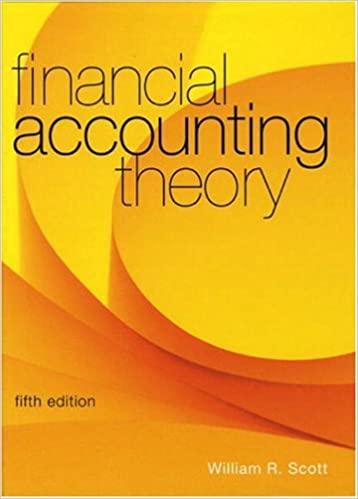On May 16, 2002, The Toronto-Dominion Bank (TD) announced that it would voluntarily begin expensing its executive
Question:
On May 16, 2002, The Toronto-Dominion Bank (TD) announced that it would voluntarily begin expensing its executive stock options, effective for its fiscal year beginning November 1, 2002. This announcement coincided with the release of its earnings for the quarter ended April 30, 2002. Net income was $132 million, down substantially from earnings of $359 million for the same quarter of 2001. While profits in TD's retail banking division were down somewhat, the main component of the earnings decrease came from write-offs of problem loans and massive provisions for further loan losses.
Required
a. Given its sharply reduced earnings, why would the bank make matters worse by expensing its ESCs?
b. Canadian accounting standards required expensing of ESOS beginning in 2004, with IASB and FASB standards following in 2005. Previously, ESO fair value was reported in the financial statement notes. TD was one of numerous firms that voluntarily decided to expense their ESOS prior to these standards coming into effect. Given this voluntary expensing, the question arises as to whether a standard is needed. Explain some of the costs and benefits of a standard requiring ESOS to be expensed.
Step by Step Answer:






